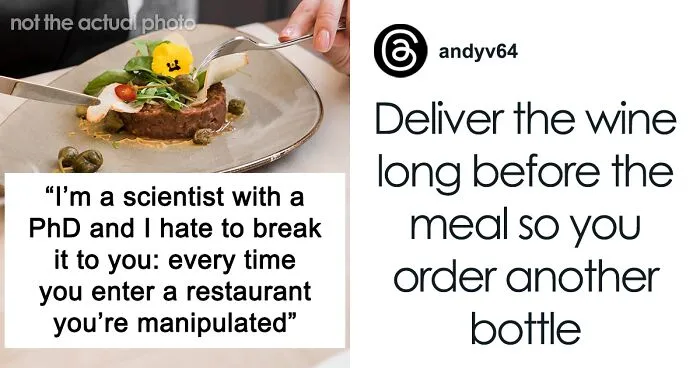The saying “all is fair in love and war” is often extended to business practices as well. Dr. Hussein Naji, who has a Ph.D. in AI & Data Science for Healthcare, is committed to educating himself and others about these methods. Last week, he made a post on his Threads account revealing various psychological tricks used by the restaurant industry to influence customer behavior and increase spending. Understanding these tactics is crucial for protecting oneself against them.
More info: husseinnaji.beehiiv.com
RELATED:
- –Affordable Fountain Drink Machine Home for Your Kitchen
- –Quick Kitchen Cleaning Tips: Best Kitchen Hacks Ideas
- –15 Clever Ideas For Your Kitchen Soap Dispenser Hack
Restaurants Manipulate Us Into Spending More Money
There are so many laws controlling how we spend our money when eating out that it’s hard to notice when they take hold of us
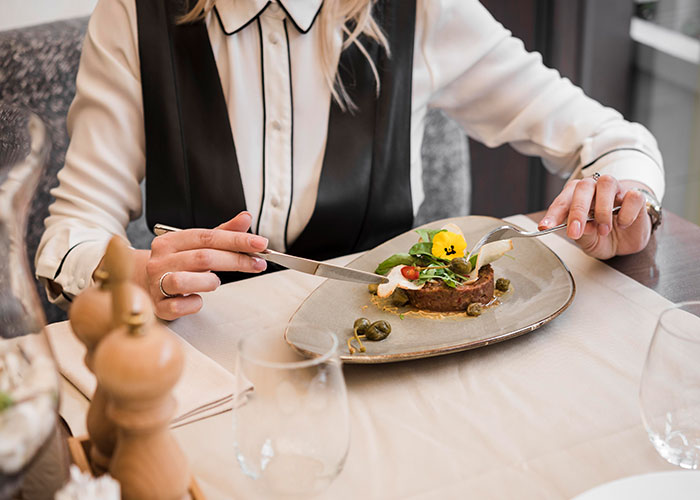
Here are a few collected by Dr. Hussein Naji that should provide a better understanding of what we’re paying for
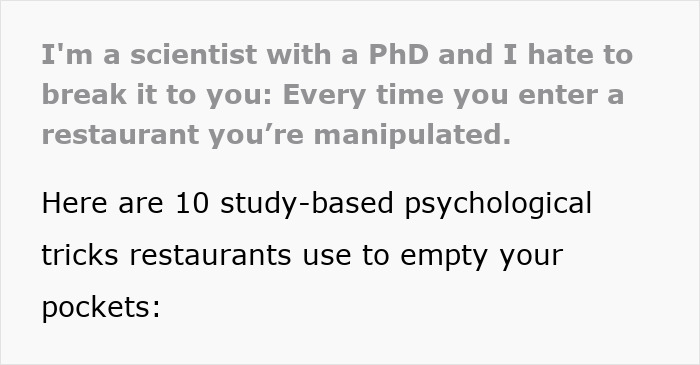
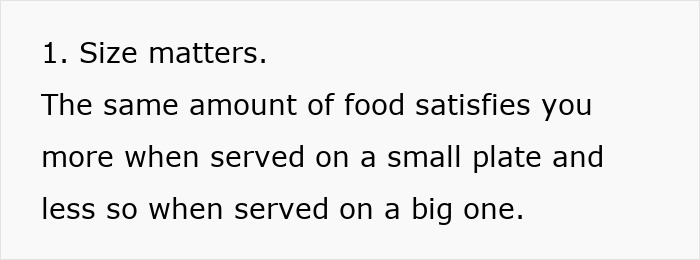
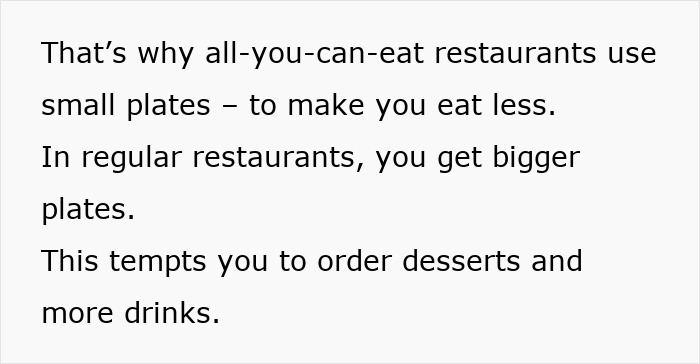
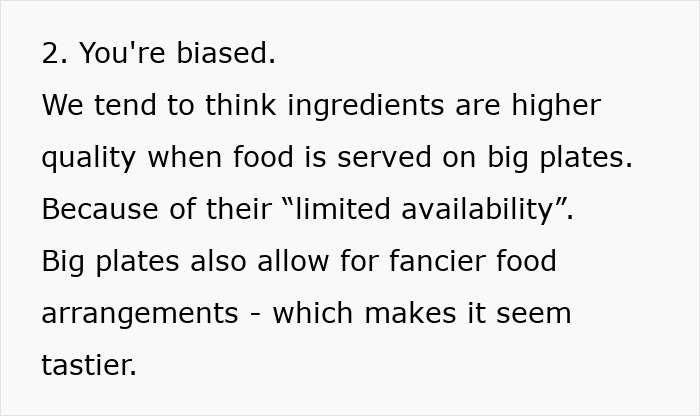
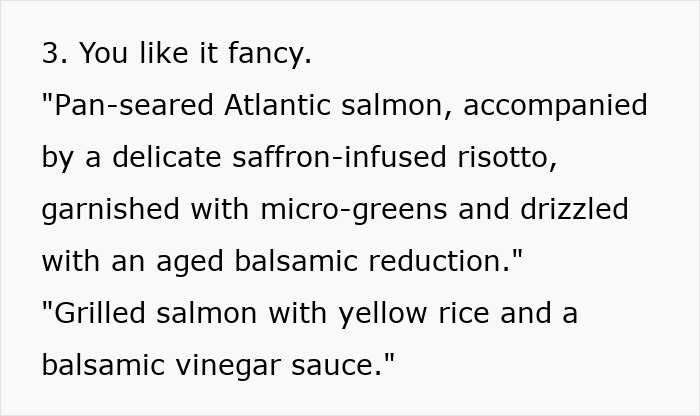
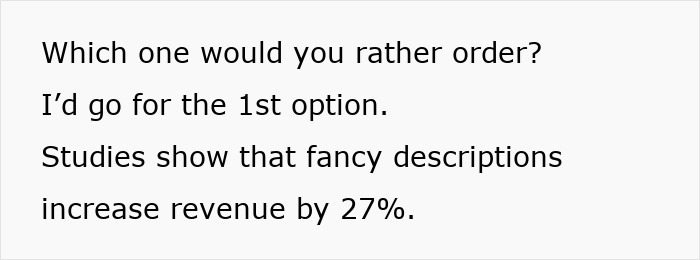
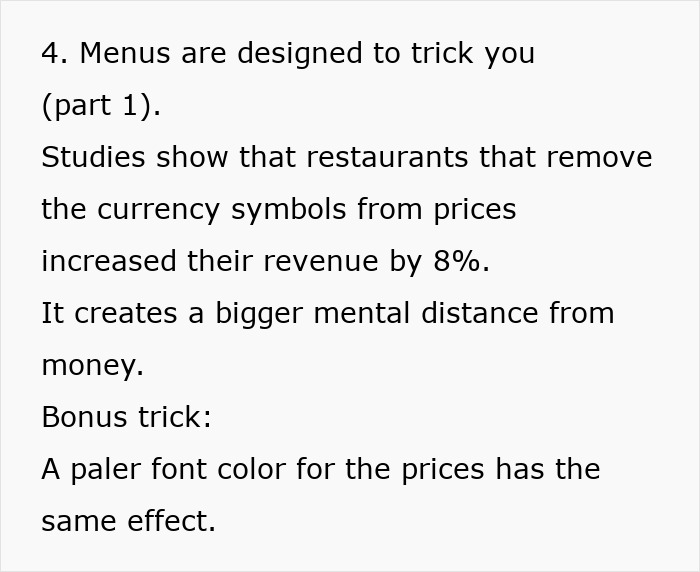

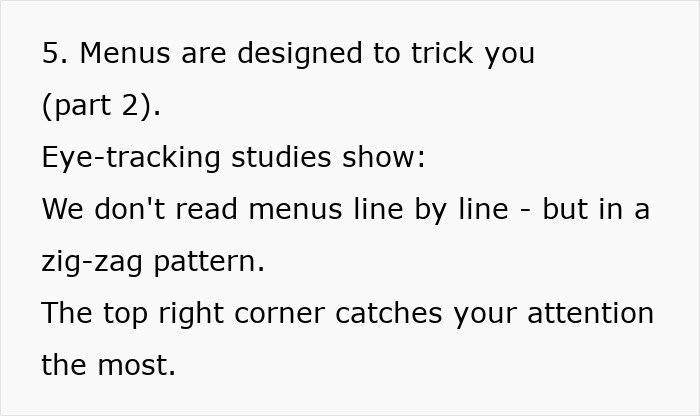
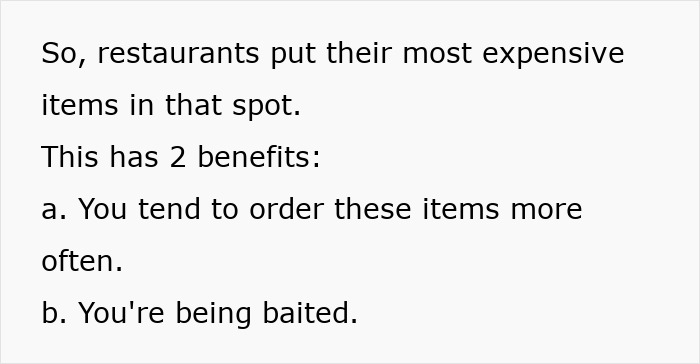

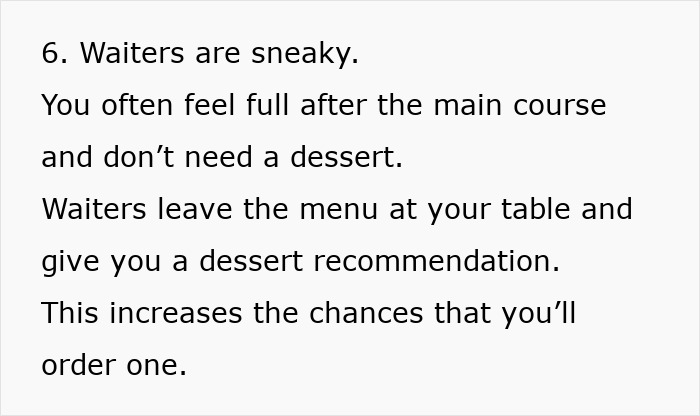
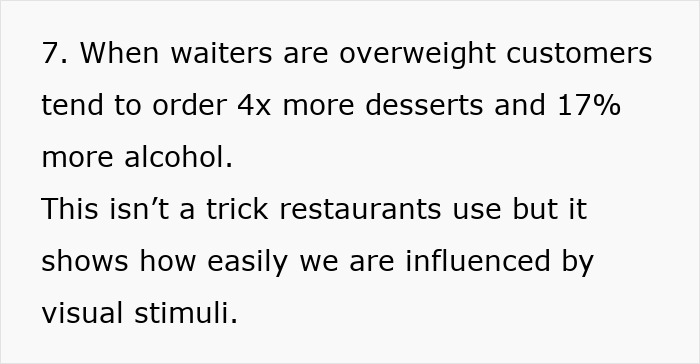
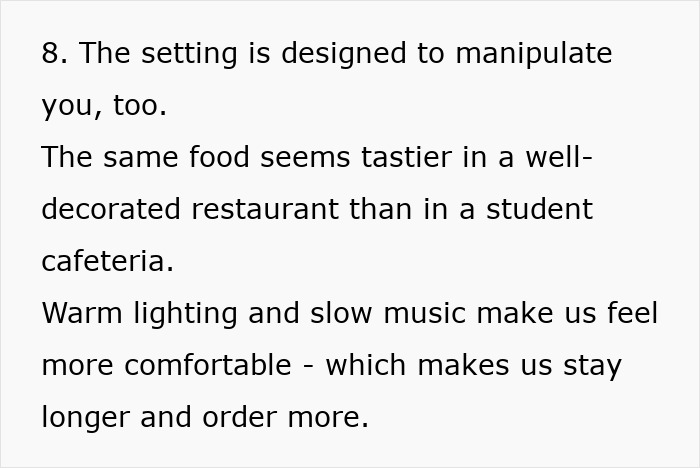
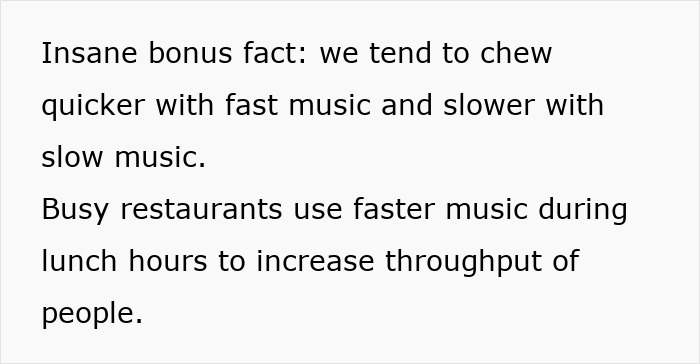
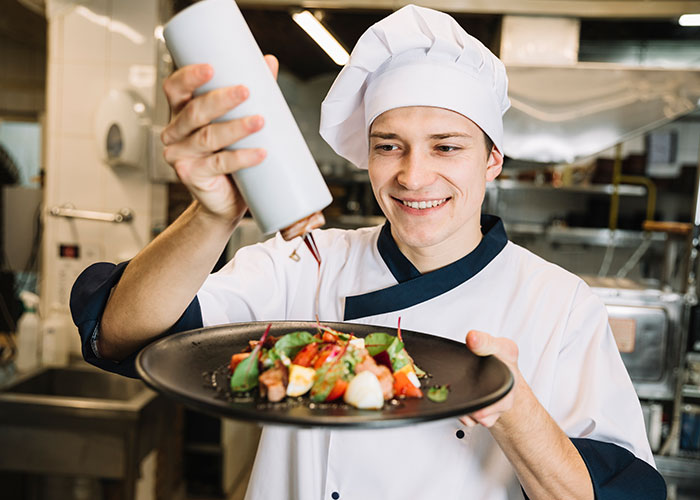
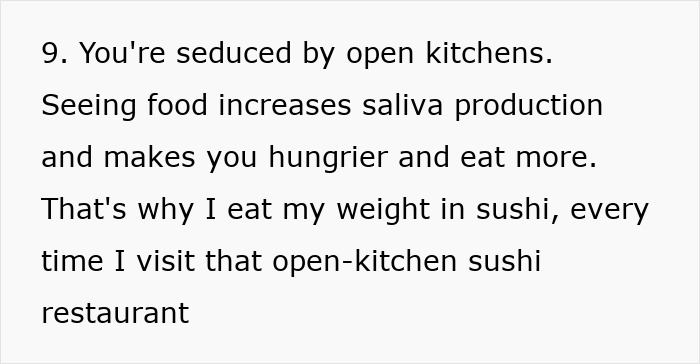
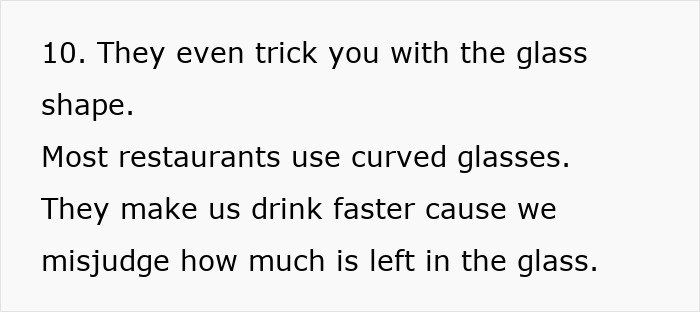
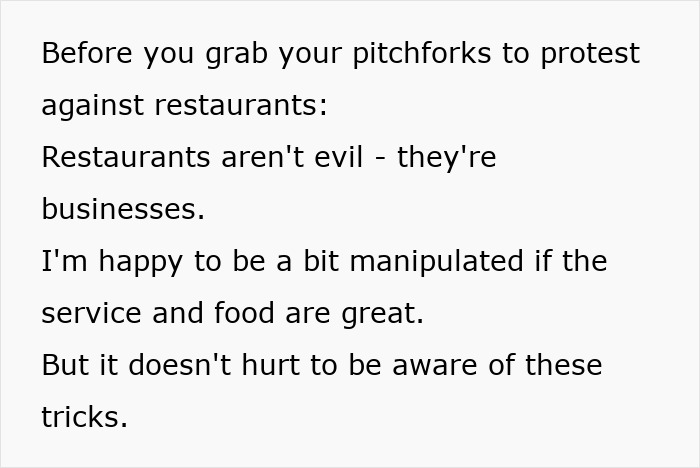
Image credits: husseinnaji_
The author of the post told us that it shouldn’t be viewed as an attack on the restaurant industry

Dr. Hussein Naji, who holds a Ph.D. in AI & Data Science for Healthcare, shared insights into his viral thread about psychological tactics in marketing, particularly those used by restaurants. In an interview with Bored Panda, he expressed his fascination with psychology, stating, “Marketing is basically a branch of psychology that just means: ‘How can we make people think they want to buy our product.’” He stumbled upon this topic online, found it intriguing, and decided to explore it further.
Dr. Naji acknowledged that he is susceptible to these marketing strategies, just like anyone else, and enjoys learning ways to improve himself and sharing these insights, believing they can help others too. He clarified that his post was not meant to accuse restaurants of unethical behavior. He appreciates the dining experience, stating, “If a restaurant serves great food, has friendly staff, and provides a pleasant experience, I’m okay with being persuaded to order that extra dessert.”
He emphasized the importance of ethical sales tactics, which he believes should involve transparency and intent. Transparency means being clear about what is being sold, without withholding information or making misleading claims. Intent means aiming to genuinely benefit the customer. Dr. Naji feels that encouraging a customer to order an extra dessert can be seen as a clever tactic rather than unethical if it is done openly and the customer enjoys the experience.
The conversation also touched on a 2025 report on the State of the Restaurant Industry, which indicates that many diners prioritize the quality of their dining experience over price. According to the report, a significant majority of restaurant-goers enjoy their visits, suggesting that while restaurants may employ certain marketing strategies, they do so without significantly detracting from the customer experience. However, Dr. Naji hinted at issues in tipping culture as an area needing scrutiny.
As the reactions poured in, a few extra observations emerged
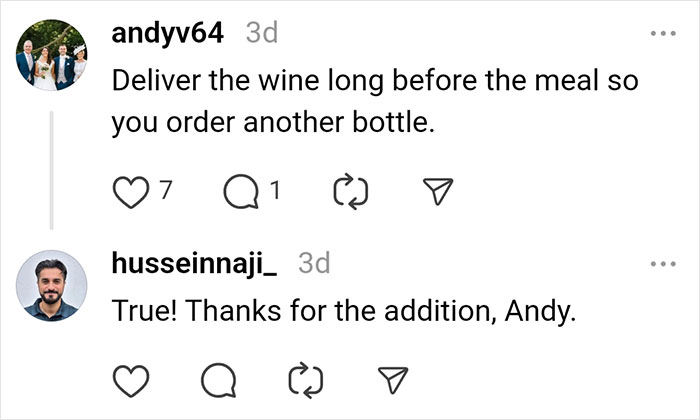
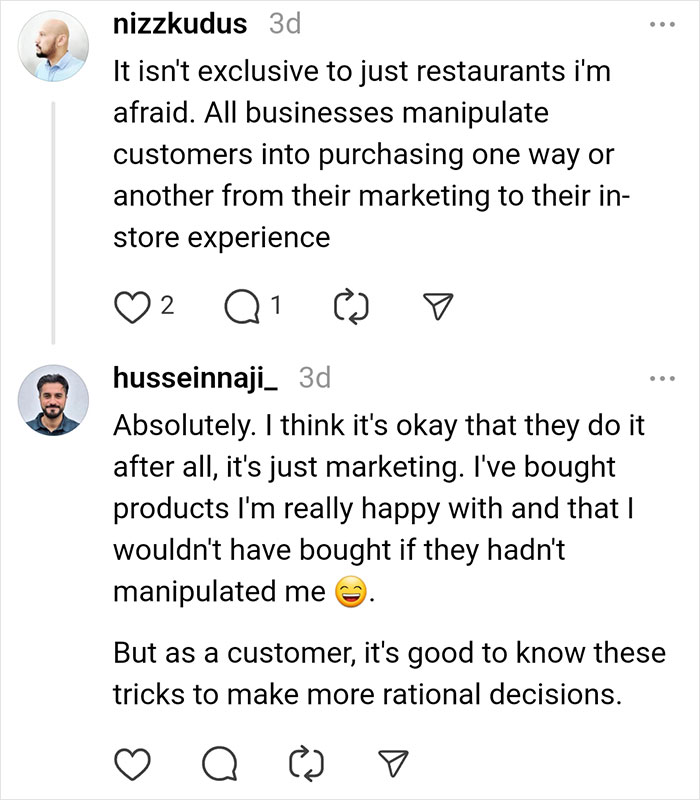
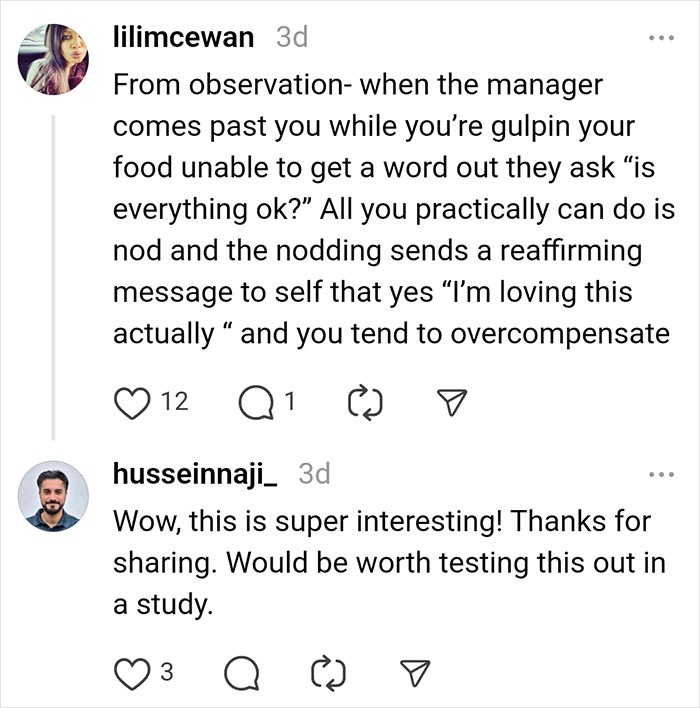
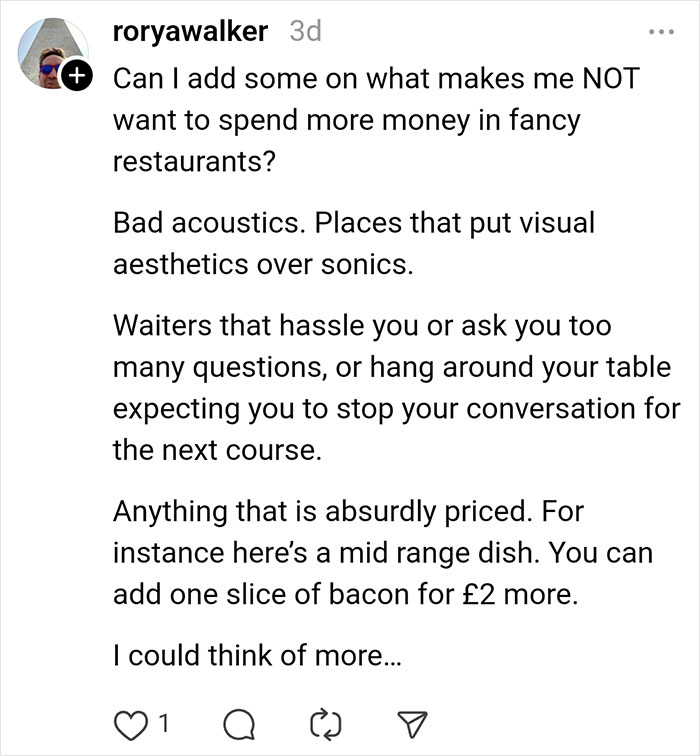
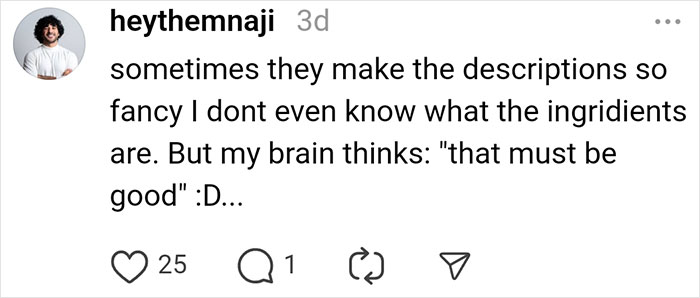
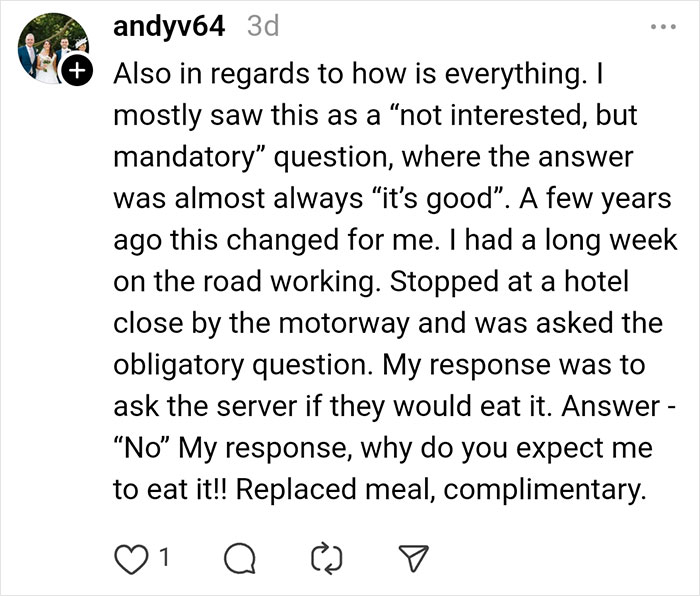
credits by: boredpanda.com
